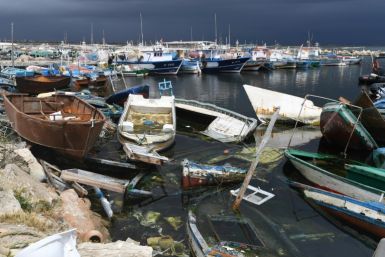Jobless Rate in Victoria Almost 5.8%
Victoria's unemployment rate of almost 5.8 per cent is expected to worsen as hundreds of workers in the Australian state lose their work.
The latest victims of job axing were drivers of trucking firm 1st Fleet after the beleaguered company sacked 150 workers at its Sunshine depot on Thursday. Besides making the workers unemployed, the company - which ceased trading on Wednesday - also owes them $403,800.
A total of 1,000 workers are affected by the closure, 700 are full-time employees and 300 are contractors who own or operate their trucks for 1st Fleet. These truckers are spread in the firm's depots in New South Wales, Queensland, Victoria and South Australia.
However, French finance company Coface, which is a secured creditor, would be the first to recover money from 1st Fleet, not the workers. The woes of the drivers are expected to be replicated in the state as Victorian Transport Association Chief Executive Phil Lovel warned that other trucking companies in the state are facing financial woes similar to 1st Fleet and are in danger of closing in the coming days.
Outside the trucking business, Commonwealth Bank of Australia said on Thursday night that the lender's mortgage services processing unit in Melbourne would close and it has informed about 100 of the affected staff that they would be declared redundant. Some of the unit's employees would be redeployed in other departments of CBA.
Tony Sheldon, national secretary of the Transport Workers' Union, blamed Coles, Woolworths and other large Australian retailers for the collapse of 1st Fleet by squeezing trucking company profits with their price war.
"Their market power, and their attack on manufacturers, farmers and transport operators, is squeezing the life out of Australian jobs," The Sydney Morning Herald quoted Mr Sheldon.
Woolworths said it has no contract with 1s Fleet, while Coles said it had last used the shuttered company's services more than five years ago.
Meanwhile, in a manifestation of Australia's three-speed economy, while hundreds of workers are losing their jobs, the mining industry needs to hire some foreign workers.
In her regular column at Australian Resources and Investment magazine, Australian billionaire Gina Rinehart said Hancock Prospecting needs over 8,000 construction workers for its Roy Hill iron ore venture at the Pilbara region in Western Australia. The 8,000 construction workers would not be concentrated in Roy Hills but will also be deployed in other Australian towns where Hancock has other ventures.
To offset the use of foreign workers during the construction phase, Ms Rinehart said her company would offer many training places to Australians. Once the project would be operational, Hancock would hire 1,000 permanent employees for at least 20 years. These 1,000 workers would be Australians, Ms Rinehart said. The planned training would be to prepare them for the jobs after the construction phase.
However, Construction, Forestry, Mining and Energy Union WA Mining Division Secretary Gary Wood doubted if Ms Rinehart could fulfill her promise of providing training to local workers.
"It's just cheap foreign labour, exploiting people from other countries who are vulnerable," AAP quoted Mr Wood.
Ms Rinehart used her column to rant against her pet peeves, including the mining tax and carbon tax, as well as other government-imposed measures that add to the cost of doing business in Australia.
"Things like additional FIFO (fly in, fly out) conditions, restrictions on overseas guest labour, regulations, approvals, permits, licences and attached conditions, eliminating the diesel fuel rebate, insisting on more expensive or inappropriate Australian content, etcetera, will simply add to Australia's already high costs of doing business, and less business means less revenue and fewer sustainable jobs," The Australian quoted Ms Rinehart.






